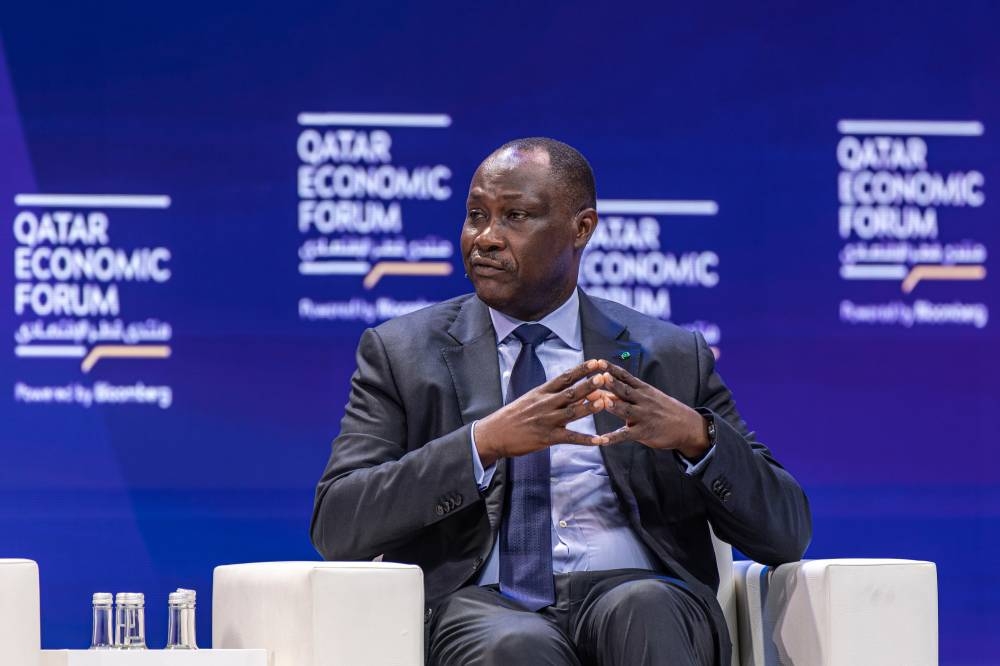
Samaila Zubairu, chief executive officer of Africa Finance Corporation (AFC), at the Qatar Economic Forum (QEF) in Doha.
Africa Finance Corp is looking to raise almost $1bn in the first half of 2024 to support industries and resilience against climate change as it readies for the next growth phase across the continent.
The Lagos-based institution plans to close financing for its inaugural $750mn Infrastructure Climate Resilient Fund in the second quarter, Chief Executive Officer Samaila Zubairu said. The fund has attracted additional $140mn and expects to lure more investors before the closure, he said. That’s in addition to a $1.26bn syndicated loan it raised in March to develop critical infrastructure.
“This year, we are focused on the beginning of our next five-year plan and that is really about how to double our impact on the continent,” Zubairu said in an interview on Bloomberg Television with Jennifer Zabasajja. Food security is an area that the lender wants to look at “more seriously” together with climate, he said.
The AFC will focus on developing the continent’s production capacity, including harnessing huge mineral and solar potential, and processing agricultural raw materials for local consumption and export, Zubairu said.
It is in talks with officials in Gulf nations to expand bilateral trade, which will see African countries export agricultural and mineral inputs to industries in the Middle East, he said.
“For most Gulf countries, they should be looking at how to capture more value, and by that you could see an extension of their supply chain into Africa,’ the CEO said. “Most African countries have a clear path for growth now and they’re beginning to understand that there’s need for us all to focus on how to create more jobs.”
Poor transport and energy infrastructure has hampered the economies of most African nations, as has inadequate processing capacity to extract value from abundant raw materials. The situation is exacerbated by climate change, with flooding and droughts plunging more people into abject poverty. A McKinsey & Co analysis in 2020 estimated the pipeline of infrastructure projects across all asset classes to be completed by 2025 at $2.5tn.
The AFC’s climate fund plans to address some of the challenges. It attracted $240mn from the Green Planet Fund and some finance from the Nigerian Sovereign Investment Authority, Zubairu said, adding that it is targeting more funding from pension funds in South Africa and some European development finance institutions he didn’t identify.
Founded in 2007, the AFC is owned by African governments, banks and private equity funds. It has invested more than $12.7bn in energy, logistics and exploration industries in 36 African countries, according to its website.
